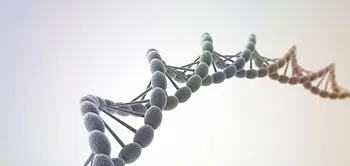For expecting couples, prenatal screening for chromosomal abnormalities has changed dramatically in the last couple of years. Both in pregnancies considered low-risk and high risk for genetic abnormalities, women are commonly offered (under various brand names) cell-free DNA testing (cfDNA). While many people are familiar with amniocentesis, or even CVS, few are familiar with cfDNA screening tests.

A non-invasive test
Unlike procedures which entailed sampling amniotic fluid (amniocentesis) or placental tissue (CVS) to get information about the fetus’s chromosomes, cfDNA examines fetal cells from the placenta which are present in the mother’s blood. After 10 weeks of gestation, there are usually enough of these cells in the mother’s circulation that testing performed on the maternal blood sample allows us to gain information about Down Syndrome (Trisomy 21) and other chromosomal abnormalities. It also allows determination of the fetal gender. Cell-free DNA screening tests have a high rate of detection for the abnormalities screened for and low rates of false positive (an abnormal test when the baby does not actually have the chromosomal abnormality)
Not a “simple” blood test
While cfDNA tests are good screening tests, they are just that – screening tests. None of these tests are 100% accurate. Their role is to inform the physician which pregnancies should be further screened. In low risk women, positive tests are less likely to be accurate than high risk women since the “background risk” is lower in the low risk population. There have been instances of (chromosomally normal) pregnancies being terminated on the basis of an abnormal screening result. Any abnormal cfDNA screen should have a diagnostic procedure, like amniocentesis or CVS, to confirm the results of the screening test. While normal (negative), tests are reassuring, they are not a guarantee that the fetus does not have a genetic abnormality. Women who are at increased risk may still want to meet with a genetic counselor, even when cfDNA screening is negative
Takeaway Points
- Screening of maternal blood after 10 weeks allows testing for some commonly encountered chromosomal abnormalities as well as fetal gender
- cfDNA tests are screening tests, not diagnostic tests
- While more accurate than previously available tests, false positives and false negatives do occur
- Abnormal results should be confirmed with CVS or amniocentesis
